Overbite is a common problem in the dental field, causing millions of people to feel self-conscious and uncomfortable with their smiles. This condition occurs when the upper teeth cover the lower teeth too much, resulting in a protruding chin and asymmetrical face. If left untreated, an overbite can cause many other problems, including pain, worn teeth, and loss of confidence when communicating or smiling.
In this article, dentist Bassendean will help you learn more about overbite, its causes, and treatment so you can choose the method that’s best for you.
What Is Overbite?
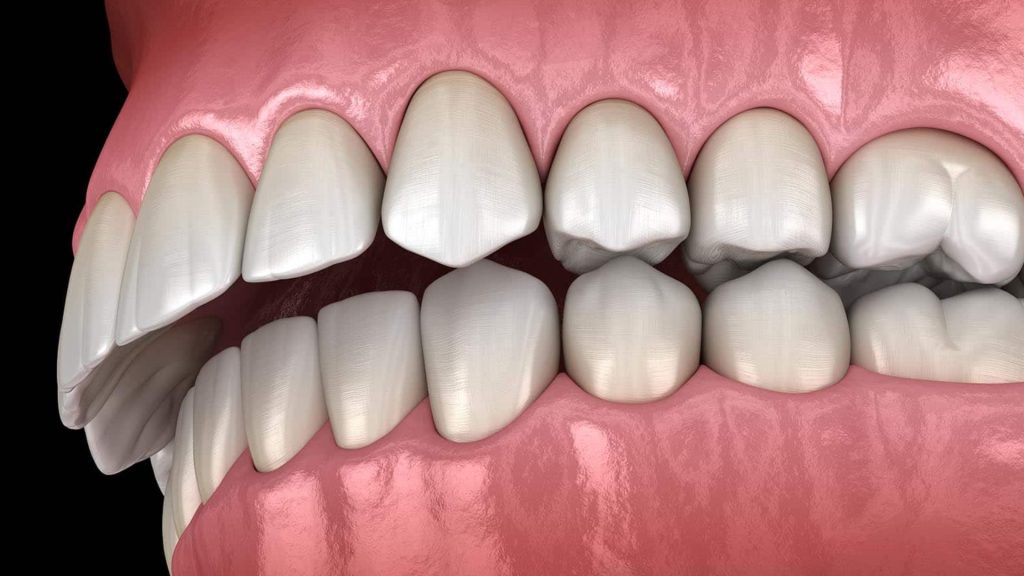

Overbite is a dental word that describes the relationship between the top and lower teeth while the jaws are closed. When the top teeth protrude over the bottom teeth instead of being forced back into place by the bottom teeth, this is called occlusal protrusion.
An overbite may vary from mild to severe and is assessed by the height of the upper teeth in proportion to the lower teeth.
- Slight overbite: Teeth are pushed forward a little bit, so they don’t grow straight. Overbite can only be detected by a dentist’s careful examination of the teeth in some cases.
- Severe overbite is evident to the naked eye because the teeth in the upper jaw protrude much farther than those in the lower jaw.
Overbite creates an uneven and unattractive appearance on the face. For instance, the inability to properly chew food is only one of the many negative outcomes of this problem, which also has indirect effects on the digestive system and may have long-term consequences for the temporomandibular joint.
Types of Overbite
Slight overbite
Slight overbite, also called vertical overlap, occurs when the upper teeth overlap the lower teeth by 2-4 millimeters. While this type of overbite is usually harmless, it can affect the appearance of the smile and create difficulty in biting and chewing.
Severe overbite
Severe overbite, on the other hand, occurs when the upper teeth significantly overlap the lower teeth, typically by 6 millimeters or more. Severe overbite may lead to various issues, including difficulty speaking, biting, and chewing. Moreover, it can cause dental problems such as enamel wear, gum damage, and jaw pain.
Complications Of Overbite
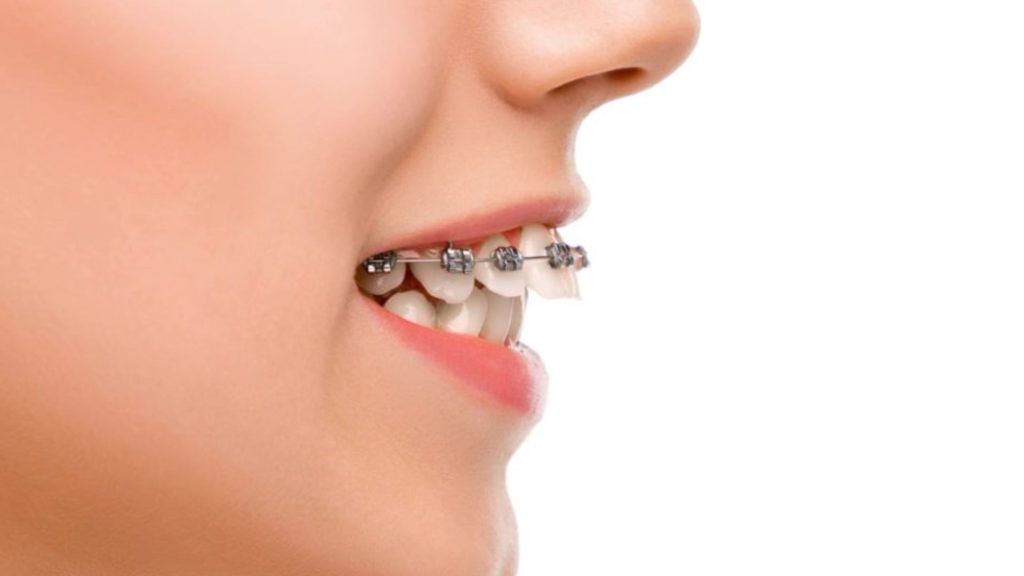

It’s possible for overbite to cause these other medical issues as well:
- Chewing or eating difficulties: An overbite may make chewing and consuming food difficult and unpleasant.
- Problems with speaking: Some people with an overbite may find it hard to say certain words or sounds.
- Pain or discomfort: Upper and lower teeth that do not match correctly can lead to pain or discomfort in the jaw or other soft tissues around the teeth.
- Teeth grinding: Teeth grinding may occur as a result of an overbite, particularly when the upper and lower teeth bite together with high power.
- Tooth and Jaw Trauma: If an overbite is not addressed, it may result in tooth and jaw injuries.
- Poor self-esteem: There are a variety of aesthetic issues that may arise from having an overbite, all of which can contribute to a loss of confidence.
If you suspect you have an overbite, you should seek advice and treatment from a dental professional.
Causes Of Overbite
Overbites seem to have a variety of origins, making diagnosis difficult. General studies have shown that the following factors are often at play in cases with overbite:
- Genetic factors: Up to 70% of the causes of protruding teeth are inherited from grandparents and parents, .. the situation of people with teeth is an overbite, leading to the same result that their children will also suffer from the same, expressed in the genetics of the facial structure, the extent can be lighter or heavier.
- Bad habit: The cause of overbite may be due to bad habits in childhood, such as frequent sucking, tongue protrusion, the habit of biting the lower lip or propping up the chin often, etc. also affect the jaw, and push teeth protruding.
- Defective maxillofacial development: This is also the main cause of protruding teeth, when the jaw bone growth is lost, the teeth do not have enough space to grow, and they may crowd together, pushing the teeth to protrude forward. The process of development from childhood to adulthood will have many changes and even unintentional fluctuations. One of the 2 overgrown bones will cause this condition.
- Trauma: Trauma to the jaw or teeth can lead to changes in the position of the teeth and lead to an overbite.
Overbite Diagnostic Method
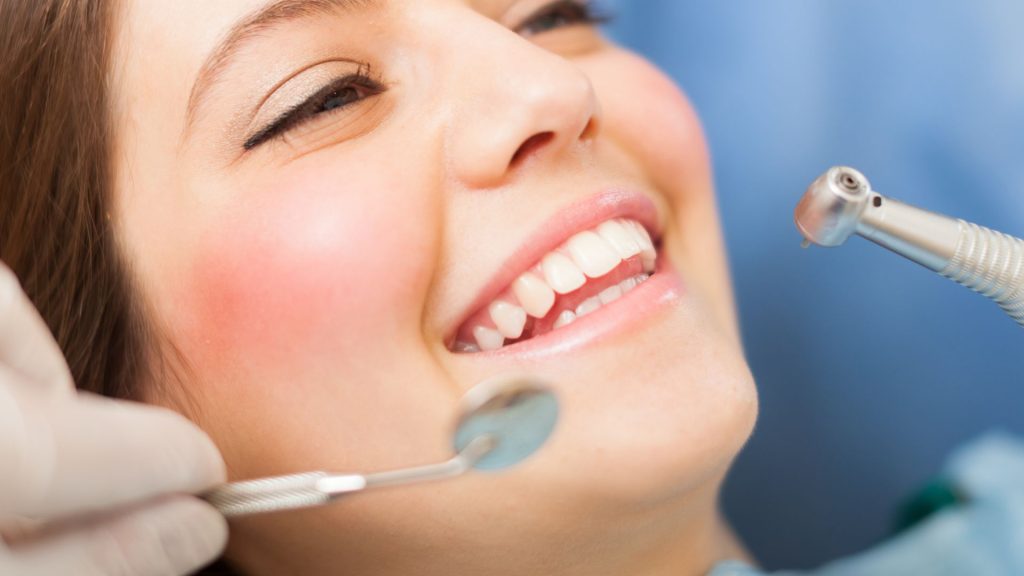

The American Dental Association (ADA) reports that almost 70% of children display indications of having an overbite. To identify any potential issues, including overbites, the ADA advises that children should receive an orthodontic evaluation by the age of 7. Timely detection and treatment can prevent the overbite from exacerbating and potentially causing more serious dental issues in the future.
Diagnosing overbite is a critical first step in fixing dental and jaw issues. Overbite can only be diagnosed by a dentist Spring Orchid utilizing specialist diagnostic tools and technology to thoroughly examine the mouth and determine the full scope of the issue:
Overbite diagnostic methods include:
- Physical exam: Your dentist will look in your mouth and use specialized tools and equipment to measure how bad your overbite is.
- X-rays: If necessary, your dentist may ask you to take X-rays to evaluate the structures inside your mouth, including the jawbone and teeth.
- 3D imaging and scanning: Your dentist may use 3D imaging and scanning techniques to make a detailed model of your Overbite and jaw in some cases.
- Oral Function Evaluation: Your dentist may also assess your oral function, including how you chew, talk, and breathe, to discover how Overbite impacts these functions.
After the diagnosis, your dentist will advise you on the best course of orthodontic treatment, which may include appliances like braces, clear braces, jaw hooks, or even surgical correction of the problem.
What Is Overbite Treatment?
Overbite is a common orthodontic problem that can be treated through different methods, depending on the severity and the age of the patient. In children, growth modification devices, braces, removal of baby teeth, and retainers are often used to correct an overbite. For adults, clear braces, teeth removal, and surgery may be necessary.
Today’s dental treatment technology is continually evolving; the use of treatment technology helps to totally correct the overbite problem. The latest methods are:
Porcelain Crown Overbite Treatment
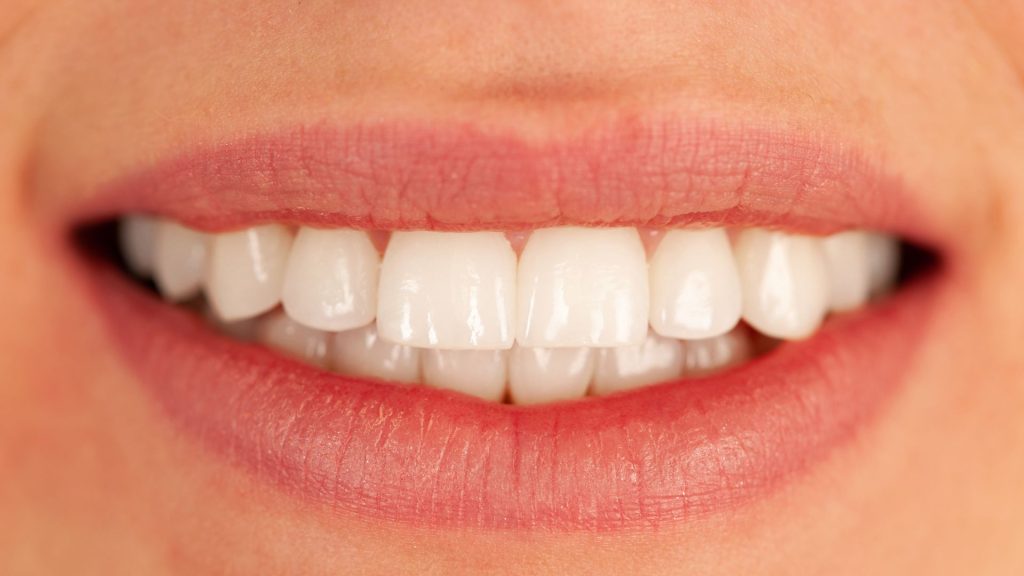

Porcelain veneers may be a useful treatment for minor symptoms of overbite. Also, porcelain coating may be used in place of whitening for slightly crooked or deviated teeth, discolored teeth, and antibiotic-induced discoloration.
In order to correct the overly prominent teeth, the dentist will first remove a little amount of enamel from the outer surface. Then, a porcelain crown will be bonded to the tooth’s surface until it is flush with the gum line.
Porcelain crowns normally require 2-4 days and 2 dentist sessions. All-ceramic teeth and metal-ceramic teeth are the 2 types of porcelain teeth available today.
In particular, specialists advocate all-ceramic teeth because of their natural appearance, durability (they last between 15 and 20 years), and low maintenance requirements. When compared to metal porcelain teeth, specifically, there is no black shine or black gums.
Orthodontic Treatment
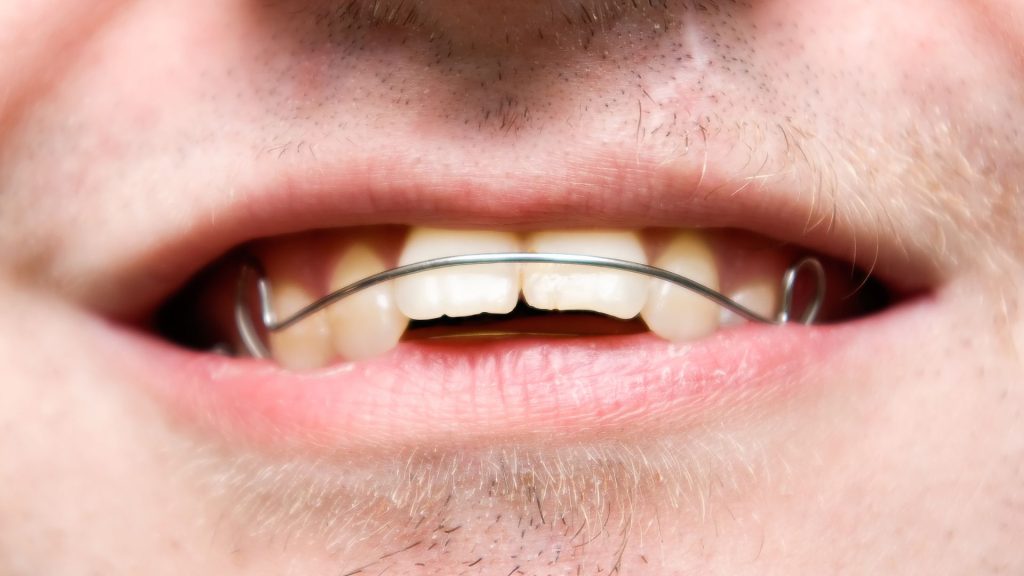

Braces are a method of adjusting the protruding teeth to a new and more aesthetic position, in the correct proportions of the bite by using brackets and wires to create a force to help the teeth move.
Currently, there are many methods of braces such as metal braces, porcelain braces, inner braces, transparent braces, etc. Which, braces with self-ligating metal brackets are considered dark.
- The highlight of this method is that it is equipped with an automatic slide system integrated into the brackets, replacing the elastic band, and creating strong and stable traction while reducing friction and limiting tooth sensitivity.
- The time to complete braces usually takes about 24 – 30 months depending on the degree of protrusion of each person. The advantage of this method is that it helps to overcome both severe overbite and mild protrusion. Non-invasive, preserving the maximum natural teeth.
Can You Treat Overbite At Home?
Overbite patients often wonder whether they may get relief from the condition without having to see a dentist, who might be out of reach for some patients due to the high cost of treatment. However, treating an overbite on your own may lead to a number of complications and is not recommended.
Each patient’s overbite will be treated differently, therefore it’s up to the dentist to choose what’s best. Self-diagnosis is inaccurate, leading to potentially painful outcomes including tooth loss, gum infection, and soft tissue invasion.
Moreover, inappropriate appliance usage might raise infection risk and create dental health issues. As a result, attempting to cure an overbite at home is very risky and should be avoided at all costs.
In this regard, one should always consult with qualified dentists for help. They will assist in the development of individualized treatment plans and the supervision of all aspects of therapy delivery. Always keep in mind that maintaining our dental health is a crucial task that requires our whole focus.
Overbite Treatment At Spring Orchid Dental
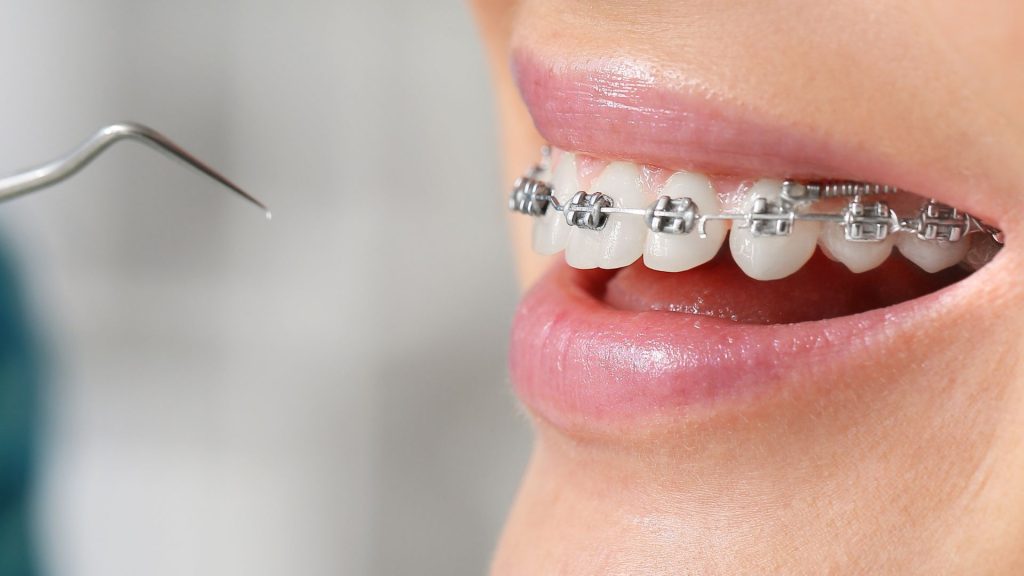

If you are suffering from Overbite and want to find a reliable place for treatment, Spring Orchid dental clinic will be the perfect choice for you. This clinic has achieved QIP standards and the highest dental safety standards, with a team of professionally trained and experienced staff.
- Dr. Sara Nguyen, one of the leading experts here, completed her degree at the University of Western Australia and has extensive experience in treating Overbite. She is a gentle, dedicated dentist and always delivers the highest quality of care in a comfortable and friendly environment.
- Spring Orchid Dental Clinic offers not only general dental services but also cosmetic dentistry, preventive, and minimally invasive dental services. You can rest assured when you come here to receive care and treatment for your Overbite disease. Dr. Sara Nguyen is always passionate about professional development and regularly participates in practical courses at home and abroad to ensure she is always up to date with the latest advances in the field of dentistry.
With the experience and professionalism of the team at Spring Orchid dental clinic, you will be assured of the best quality and safety during your treatment. Come here to find your bright and confident smile again!
FAQs
Is overbite treatment mandatory?
No, absolutely not. Overbites aren’t usually an issue, but they should be fixed if they cause problems with chewing, pronouncing words, experiencing jaw pain, or the aesthetic look of your teeth. Overbites that cause discomfort in the neck, suffocation, or other oral issues should be corrected. If you are uncomfortable with the appearance of your overbite, you should schedule an appointment with your dentist immediately once.
Is Overbite a Serious Problem?
Depending on the severity, an overbite may cause a number of issues. Teeth wear, jaw discomfort and trouble chewing are just some of the issues that may arise from an overbite. Overbite may cause further issues including bleeding gums, dental pain, and gingivitis if not remedied. So, if you are unsure whether or not you have an overbite, you should see a dentist for a proper diagnosis and treatment plan.
Can Pregnant Women Choose Overbite Treatment?
Absolutely, in many circumstances, women may get overbite therapy while pregnant. Nonetheless, treatments must be thoroughly assessed for their safety before being used on a pregnant woman and her unborn child. Get in touch with your dentist if you’re expecting a child and are experiencing overbite issues; together, you can figure out the best course of therapy.





